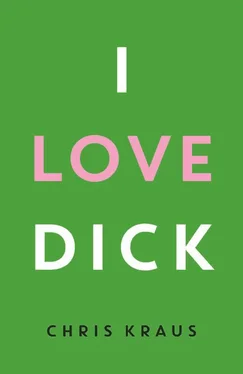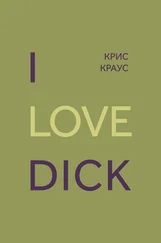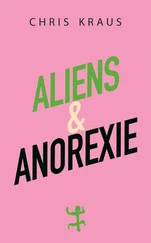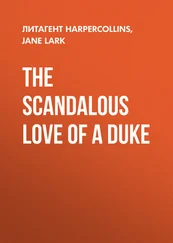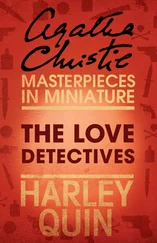EXHIBIT B: CHRIS KRAUS
Los Angeles, California
March 31, 1997
“I found Sylvère’s diary entry last night when I was searching all the backfiles of this computer for some link between Kike Art which I wrote that March and the last two essays in the book. Because I’d decided, and everyone agrees, that the only way to make this writing be a novel was to make the throughline very clear. But when I read his diary entry last night I was just so overwhelmed and moved. How much he loves me. How much he’s taken all my questions as his own.
On the phone this morning to Sylvère who’s in East Hampton I was talking about reading. How I like to dip into other people’s books, to catch the rhythm of their thinking, as I try to write my own. Writing around the edges of Philip K. Dick, Ann Rower, Marcel Proust, Eileen Myles and Alice Notley. It’s better than sex. Reading delivers on the promise that sex raises but hardly ever can fulfill—getting larger ’cause you’re entering another person’s language, cadence, heart and mind.
On April 9, 1995 I saw Dick alone in Los Angeles for the last time. We took a walk behind Lake Avenue. On April 20, I phoned him from upstate New York. I was upset and wanted resolution. The conversation was long and messy. He asked me why I made myself so vulnerable. Was I a masochist? I told him No. “’Cause don’t you see? Everything that’s happened here to me has happened only cause I’ve willed it.” On April 23, I met John Hanhardt, then curator of the Whitney Museum, to talk about my films. I was expecting John to offer me a show; instead, he wanted to engage me in a dialogue about the “failure” of my films.
On June 6, 1995 I moved permanently to Los Angeles.
The philosopher Ludwig Wittgenstein wrote in his diary, “Understand or die.”
That summer I was hoping to understand the link between Dick’s misapprehension of me as a “masochist” and John Hanhardt’s judgement of my films. Both men admitted that though they found my work repugnant, it was “intelligent” and “courageous.” I believed that if I could understand this link I could extend it to the critical misreads of a certain kind of female art. “I have just realized that the stakes are myself,” Diane di Prima wrote in Revolutionary Letters in 1973. “Because we rejected a certain kind of critical language, people just assumed that we were dumb,” the genius Alice Notley said when I visited her in Paris. Why is female vulnerability still only acceptable when it’s neuroticized and personal; when it feeds back on itself? Why do people still not get it when we handle vulnerability like philosophy, at some remove?
Today at Barnes & Noble I bought a new book by Steve Erickson. The jacket blurbs, placing him within a new and all-male canon, offended me. “Erikson’s a major player,” the Washington Post crowed, shades of Norman Mailer in the ’50s, “up there with his contemporaries Richard Powers and William Vollman, the spokesmen of the chaos generation.”
“Dear Dick,” I wrote in one of many letters, “what happens between women now is the most interesting thing in the world because it’s least described.”
El Paso Drive
June 21, 1995
DD,
This letter comes to you from Eagle Rock, Los Angeles—it’s 40 miles away from where you’re living but it feels very far away. I got to LA two weeks ago, seems like forever. Constant loops from one mood to another, loneliness and optimism, fear, ambition… Do you know the meaning of those roller coaster billboards that you see driving round the city? A black & white slightly blurred photo of some people on a roller coaster, a red circle slash for “No” printed at the center? Don’t know if it’s some kind of public art. It’s a poor attempt at menace if it is one. In New York on 7th Street between Avenues B and C there’s a plywood hoarding nailed like a canopy to some scaffolding above the entrance of a crackhouse. Someone’s wheat-pasted a poster of two men in loose black clothes leaning with their guns against a high-rise patio balustrade. It’s very scary: war-time reality slammed up against the image of a new-wave ’60s futuristic movie. This is no movie, the poster seems to say. It’s Beirut, these guys are serious, and so is thug business. Walking east towards it your eyes perform a double flip—the image of the patio seems to be protruding from the building, very trompe l’oeil, but by the time you’ve finally unravelled it you’re already walking past the armored door.
God what a hoot. I’m moved to talk to you about art because I think you’ll understand and I think I understand art more than you—
—Because I’m moved in writing to be irrepressible. Writing to you seems like some holy cause, ’cause there’s not enough female irrepressibility written down. I’ve fused my silence and repression with the entire female gender’s silence and repression. I think the sheer fact of women talking, being, paradoxical, inexplicable, flip, self-destructive but above all else public is the most revolutionary thing in the world. I could be 20 years too late but epiphanies don’t always synchronize with style.
But really Dick I’m moved to write you differently ’cause everything is different now. I think of you a lot now that crossing socially seems inevitable. Both of us are in the LA artworld and it’s small.
The image that I have of you is frozen in a single snapshot: April 19, the opening of the Jeffrey Vallance/Eleanor Antin/Charles Gaines show at the Santa Monica Museum. You’re standing in the largest Jeffrey Vallance room, talking, drink-in-hand, to a knot of younger people (students?). Tall, black shirt and Euro-cut black jacket, standard opening wear for artists. You’re standing very straight, your face smushed back in against itself; smiling-talking-moving yet imploding somehow backwards towards the immobility of the frame. You’re locked. You are a country. A separate state. Visible, unbridgeable. And I’m standing in a tiny cluster next to yours, a trio, Daniel Marlos and Mike Kelley and just like you I’m shaky—my body trembles slightly as it cuts through space. But also very present. The Conquering of Fear is like performance. You recognize your fear and then you move with it.
So far I’ve told “our” story twice, late at night, as fully as I could, to Fred Dewey and Sabina Ott. It’s the story of 250 letters, my “debasement,” jumping headlong off a cliff. Why does everybody think that women are debasing themselves when we expose the conditions of our own debasement? Why do women always have to come off clean? The magnificence of Genet’s last great work, The Prisoner of Love , lies in his willingness to be wrong: a seedy old white guy jerking off on the rippling muscles of the Arabs and Black Panthers. Isn’t the greatest freedom in the world the freedom to be wrong? What hooks me on our story is our different readings of it. You think it’s personal and private; my neurosis. “The greatest secret in the world is, THERE IS NO SECRET.” Claire Parnet and Gilles Deleuze. I think our story is performative philosophy.
The artist Hannah Wilke was born Arlene Butter in 1940 and grew up in Manhattan and Long Island. She died of cancer at the age of 52. Wilke’s output was prolific and consistent. Through constant effort she maintained a visible career. At a certain point, perhaps the early ’70s, her work began addressing the following question:
If women have failed to make “universal” art because we’re trapped within the “personal,” why not universalize the “personal” and make it the subject of our art?
Читать дальше
Конец ознакомительного отрывка
Купить книгу
